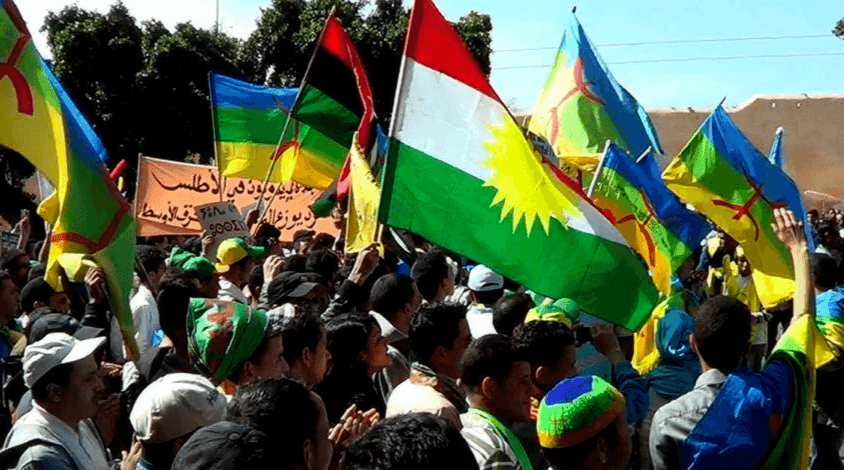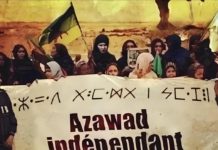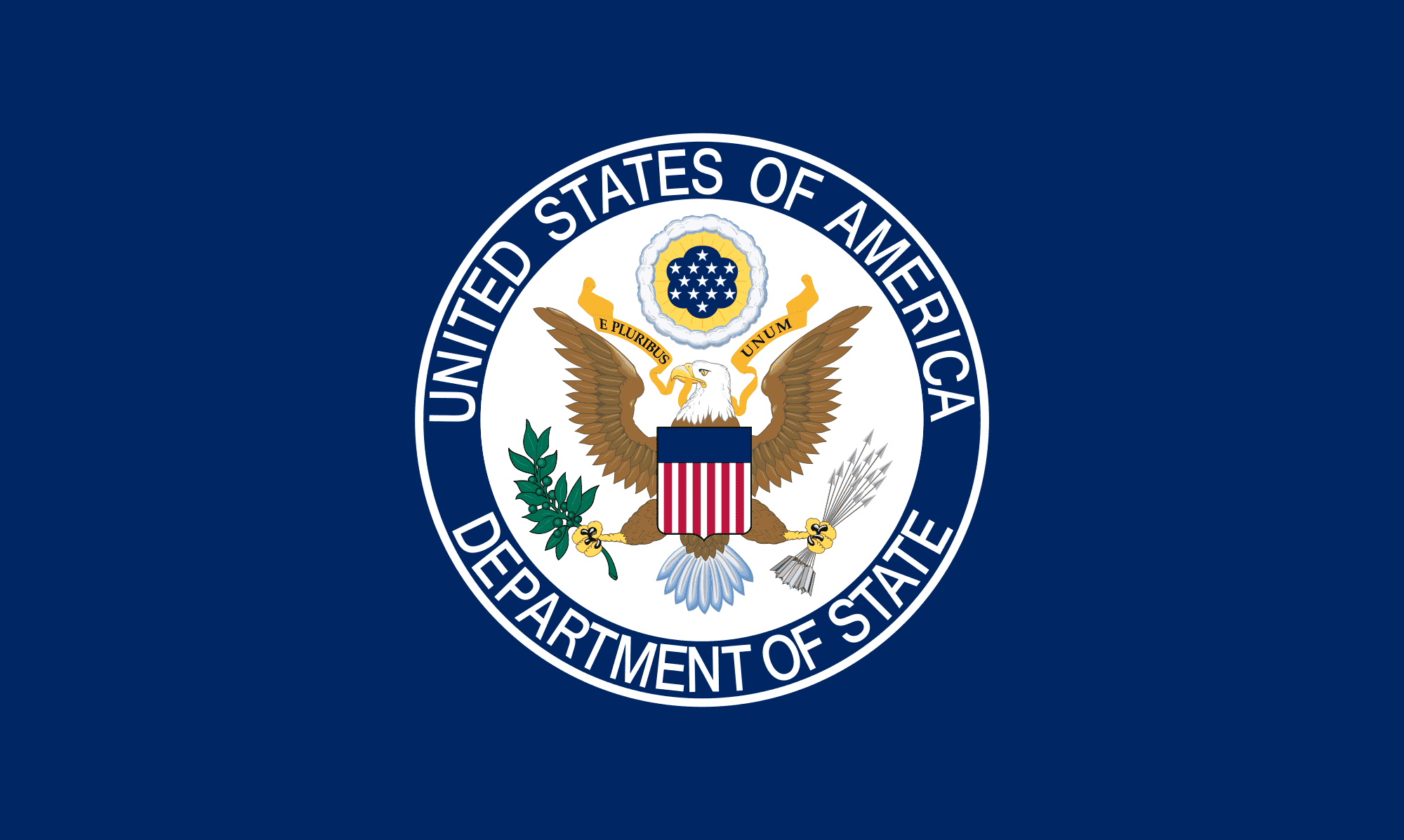Turkey, Algeria, and Morocco have both engaged in silencing campaigns against growing Kurdish and Amazigh consciousness. This is yet another attempt at excluding aboriginal voices from the world stage.

There is great opportunity for change in 2019 in the Middle East and North Africa. In Algeria, the old and decrepit dictator Abdelaziz Bouteflika was forced to step down after a mass protest movement. Turkey’s economy has been in a downward spiral since last year, with many younger Turks growing frustrated with the increasing religiosity and authoritarian nature of the Justice & Development Party (AKP). The local elections this year resulted in a humiliating defeat of the AKP in the Turkish capital of Ankara, as well as Istanbul. Central to these developments is the growing participation and consciousness of indigenous communities—the Amazigh (whom some know as Berbers) and Kurds. Yet the majority populations in each country are not willing to allow these voices to be heard.
In Algeria, human rights activist Kamel Fekhar, who is of Amazigh descent, was arrested once again. Algerian authorities have charged that he was “inciting racism” by protesting against the human rights violations against his people by the Arab majority. Dr. Fekhar also called for autonomy in the northern Sahara region of Mzab. He previously was imprisoned for “incitement” for two years in 2015. In neighboring Morocco, the Amazigh activist Nasser Zefzafi has sewn his mouth shut in a hunger strike protest. Zefzafi was sentenced to 20 years in jail for leading a peaceful protest movement in the Amazigh-majority area of Rif. The demonstrations protested corruption and a lack of equal opportunity compared to the wealthier Arab sections of Morocco.
Meanwhile, Turkey refused to grant mayor-elects their mandates in the recent elections due to their pro-Kurdish stances. Instead, the state has granted the mandates to AKP candidates who were defeated in the elections, on the ground that the pro-Kurdish People’s Democratic Party (HDP) is “supportive of terrorism.” Going even further, some 60 politicians of Kurdish descent were arrested in Turkey. This current crackdown comes just days after the Interior Minister, Suleyman Soylu, promised an operation to target the HDP on grounds of “separatism.”
Long denied equal rights by the Turkish and Arab majorities in these countries, and having suffered military campaigns aimed at crushing nationalist elements among the population, both Amazigh and Kurdish communities in North Africa and Turkey have aimed for negotiations and peaceful demonstrations. Such protest movements are only part of a general desire for equal rights, greater societal participation, and at most, autonomy, for these aboriginal peoples. The Kurds also engaged in a peace process with the Turkish state after years of insurrection that brought only suffering to all. The current Turkish government chose to abandon this peace process in 2015, and began bombing Kurdish targets throughout the Middle East instead.
Algeria, Morocco, and Turkey have joined with other countries in effectively erasing indigenous voices. Like the United States and Brazil, these countries have used violence and prison to silence and remove the native populations as they usurp their land. These tactics have quieted the calls for independence, and reduced the calls for autonomy. With the indigenous population left with no choice but to call for equal rights and participation in civil society, they are left at the mercy of the state. As a result, we’ve seen the voices of Native American voters silenced; indigenous Brazilian tribes losing their land and being killed; Kurds being denied their representatives in the Turkish government; and Amazigh being denied opportunity in North Africa. Unfortunately, the media has paid little—if any—attention to this multilayered and multinational phenomenon.
Already there have been motions of solidarity between the Amazigh and the Kurds. Surely more such motions and demonstrations will continue, as similar methods of oppression are deployed against both populations. Expanding upon that, a network of indigenous journalists, activists, writers, thinkers, and philosophers should come together to bring awareness to such shared experiences. If the outside world and the established political systems—internationally and domestically—refuse or are unable to help, it’s time for native peoples to work together to liberate ourselves and let the world know of our struggle.
The views expressed in this article are the author’s own and do not necessarily reflect Amazigh World News’ editorial views.

















Hi,
may I have the quoting source of the pictures in the text? I will maybe use it in a conference or paper.. Thanks a lot. Mohand